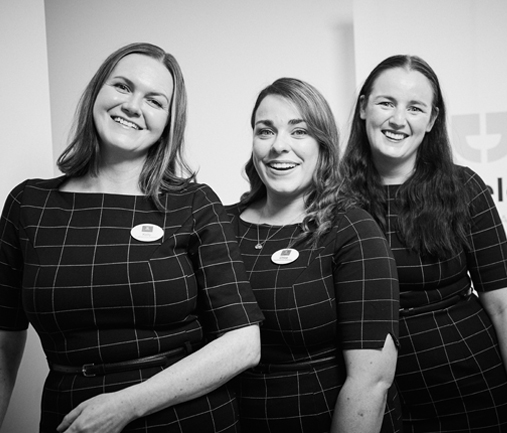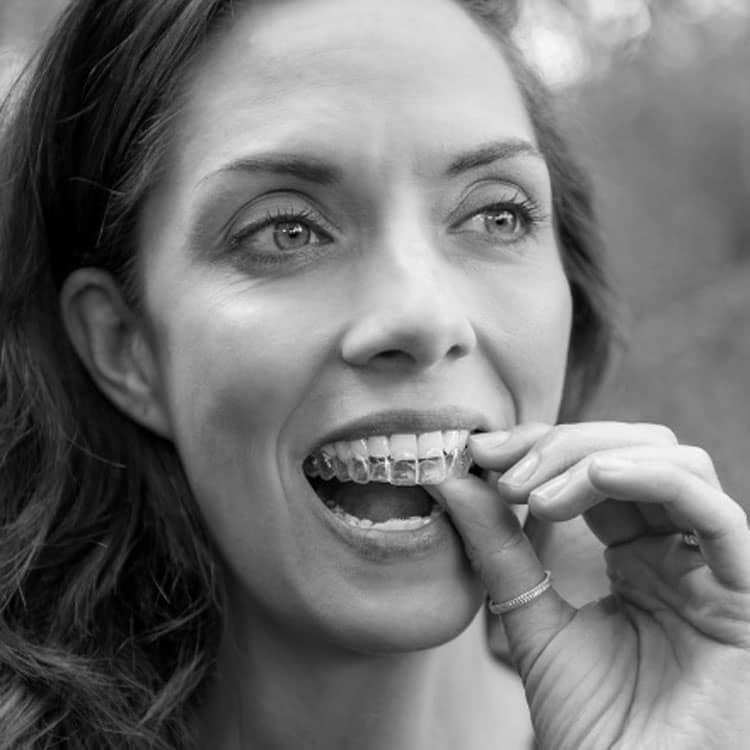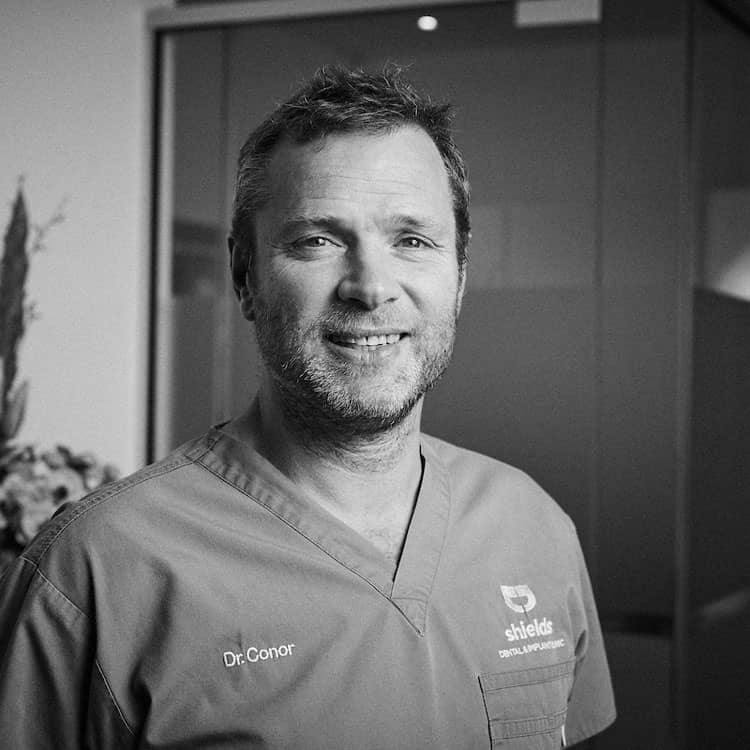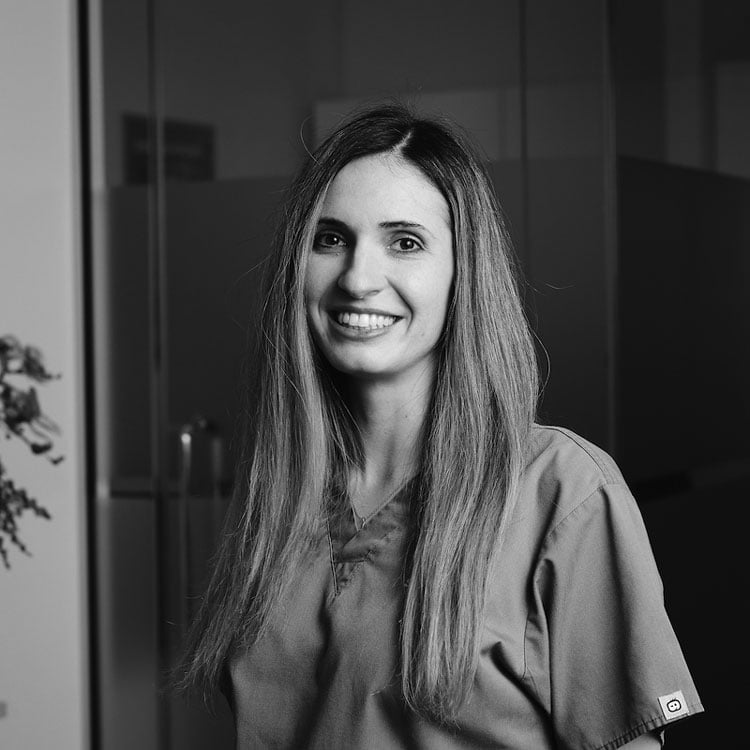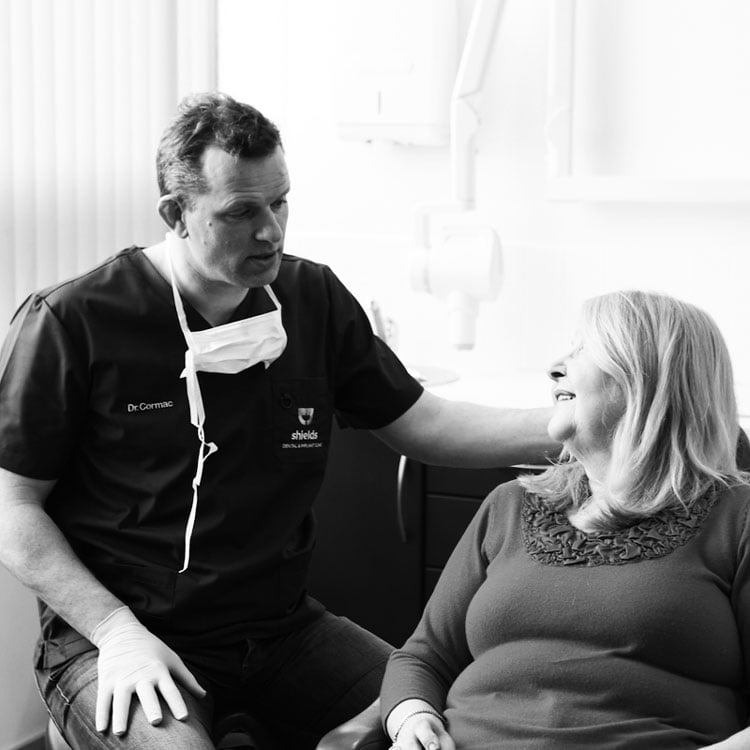Don’t let tension
take over your health.
Clenching is often one of the symptoms of Temporomandibular Joint Dysfunction.
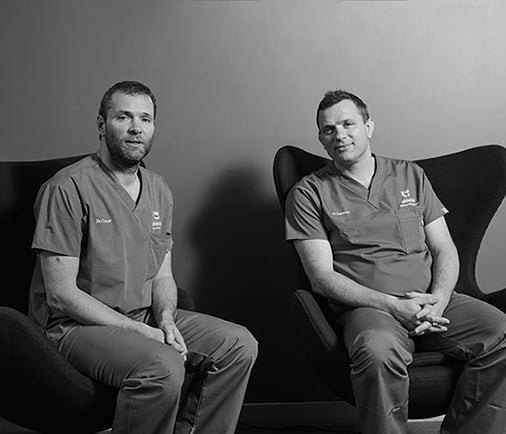
What is Temporomandibular Joint Dysfunction?
The Temporomandibular Joint (TMJ) is the joint connecting the lower jaw and skull, which enables you to open and close the mouth, and chew from side to side. Temporomandibular Joint Dysfunction (TMD) is the name given to problems with the jaw, and the muscles in the face that control it.
What are
the symptoms?
Clenching the jaw is something that most people tend to do when focusing on a domestic or work task such as household chores, gardening, car maintenance, typing, and so on.
However, excessive clenching can lead to severe headaches or neck and shoulder pain, or you may suffer from recurrent pain or discomfort on the side of the face around the ears or the jaw joints.

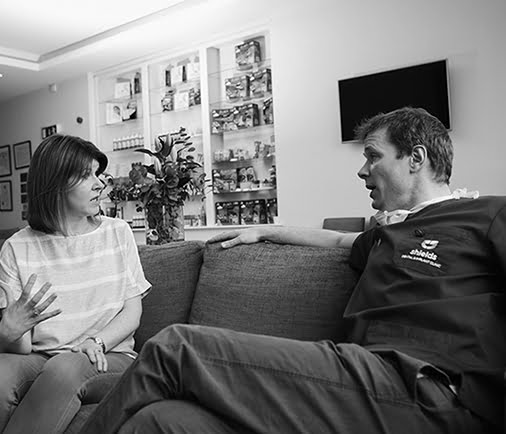
How we
can help.
At Shields Dental & Orthodontic Clinics in Limerick, Castletroy and Roscrea we have years of experience in the diagnosis and treatment of TMD and have been members of the British Society for Occlusal Studies for over 15 years.
To find out how we can help simply call us on 061 539322 or fill out a contact form.
FAQs.
Invisible items
What is occlusion?
‘Occlusion’ is the dental term used to describe the way the teeth meet when the jaws bite together.
What are occlusal problems?
- Clicking, grinding or pain in the jaw joints, ringing or buzzing in the ears, and difficulty opening or closing the mouth.
- Teeth that are out of line, heavily worn or constantly breaking, fillings that fracture, or crowns that work loose.
- Loose teeth or receding gums, which can be worsened by a faulty ‘bite’.
- Muscle spasm: if the jaw is in the wrong position, the muscles moving the jaw must work harder and so tire. Thus leading to muscle spasm which causes headaches or migraine, especially first thing in the morning; pain behind the eyes, sinus pain, pains in the neck and shoulders and occasionally discomfort in the back muscles.
How many people suffer from these problems?
Up to 1 in 4 people, men and women equally, may have some symptoms. The symptoms can often start with the menopause or other hormonal changes. Many people have imperfect occlusion and missing teeth, yet never have symptoms because they adjust to their problems. Occasionally, in times of increased stress and tension, the symptoms may appear and then go away immediately.
In some cases, the teeth and gums can be affected straight away and, instead of headaches, you may suffer:
- Flattened, worn teeth
- Broken teeth, fillings and crowns
- Loose teeth
- Continual sensitivity of your teeth to temperature change
- Toothache with no apparent cause
How are occlusal problems treated?
Conor and Cormac have undertaken extensive postgraduate training with the British Society of Occlusal Studies and are experienced in the assessment and treatment of TMD.
Various muscles may be sore when testing, or broken and worn areas of the teeth can provide tell-tale evidence of clenching or grinding, a common sign of an incorrect bite.
The dentist may diagnose the problem by prescribing an Occlusal Splint, a hard plastic appliance that fits over the upper or lower teeth. This will be measured and fitted accurately so that when you bite on it, when your muscles are relaxed, all your teeth meet at exactly the same time.
The Occlusal Splint may have to be worn all the time, or at night only. If the appliance relieves the symptoms, it is possible that your bite will need permanent correction.
Treatment: Tooth adjustment (equilibration)
Your teeth may need to be carefully adjusted to meet evenly. Changing the direction and position of the slopes that guide your teeth together can often help to reposition the jaw.
Treatment: Teeth replacement
The temporomandibular joint needs equal support from both sides of both jaws. Missing teeth may need to be replaced by tooth replacement therapy using bridges, dentures, or implants. Replacement is not usually done until a diagnosis is confirmed using an Occlusal Splint that has relieved the symptoms. Relief for some patients is instant, for others it can take a long time.
Treatment: Medication
Some drugs can help in certain cases, but this is usually only temporary. Hormone replacement therapy may also help some women.
Treatment: Diet & exercise
As with any joint pain, it can help to put less stress on the joint. A soft diet can be helpful, as can corrective exercises and external heat. Physiotherapy exercises can often help.
Treatment: Relaxation
Counseling and relaxation therapy may help in some cases. These techniques help the patient to become more aware of stressful situations and to control tension.
Our
treatments.
From the regular check-up to the specialist and advanced treatments that are needed throughout life, we always use state-of-the-art equipment and latest recommended techniques.
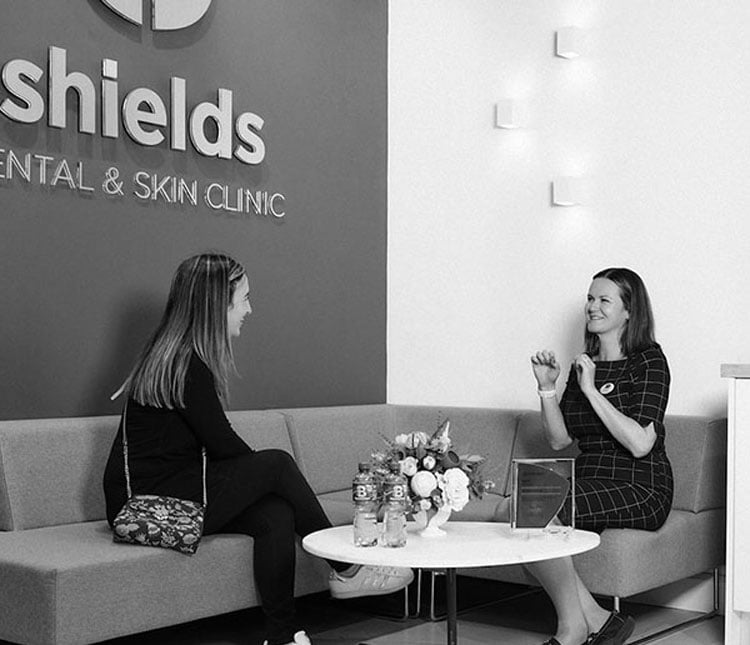
Open 7 days*
Highly trained specialists and dentists
Your safety is guaranteed in our hands
Payment options
Technically advanced
Convenient locations
No obligation consultations
Find out what makes us different.
Recent Reviews.

SCR, Limerick, Shields Dental & Orthodontic Clinic

Castletroy, Limerick, Shields Dental & Orthodontic Clinic
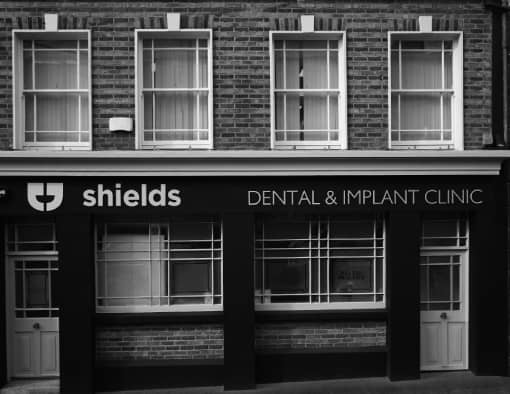
Roscrea, Tipperary, Shields Dental & Orthodontic Clinic

Blackrock, Dublin, Shields Dental & Orthodontic Clinic
Convenient
locations.
You don’t have to go to Beverly Hills to look good, you can go local. In convenient locations in Limerick, Castletroy, Roscrea and Blackrock Dublin. Comfortable but advanced, friendly but professional. Click on your preferred location in the menu or use the arrows to discover more.
For the
smile you have
always wanted.
Use our FREE consultation service to speak to one of our Treatment Coordinators, who give you information about how we can help, without any financial commitment.
Most importantly it helps to build your confidence in starting your journey with Shields to the smile you have always wanted.
We’ll discuss with you what you would like to achieve with your dental health and the appearance of your smile, answer any questions and listen to any problems you may have had with your teeth in the past.
